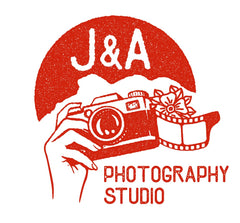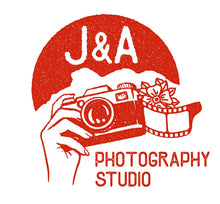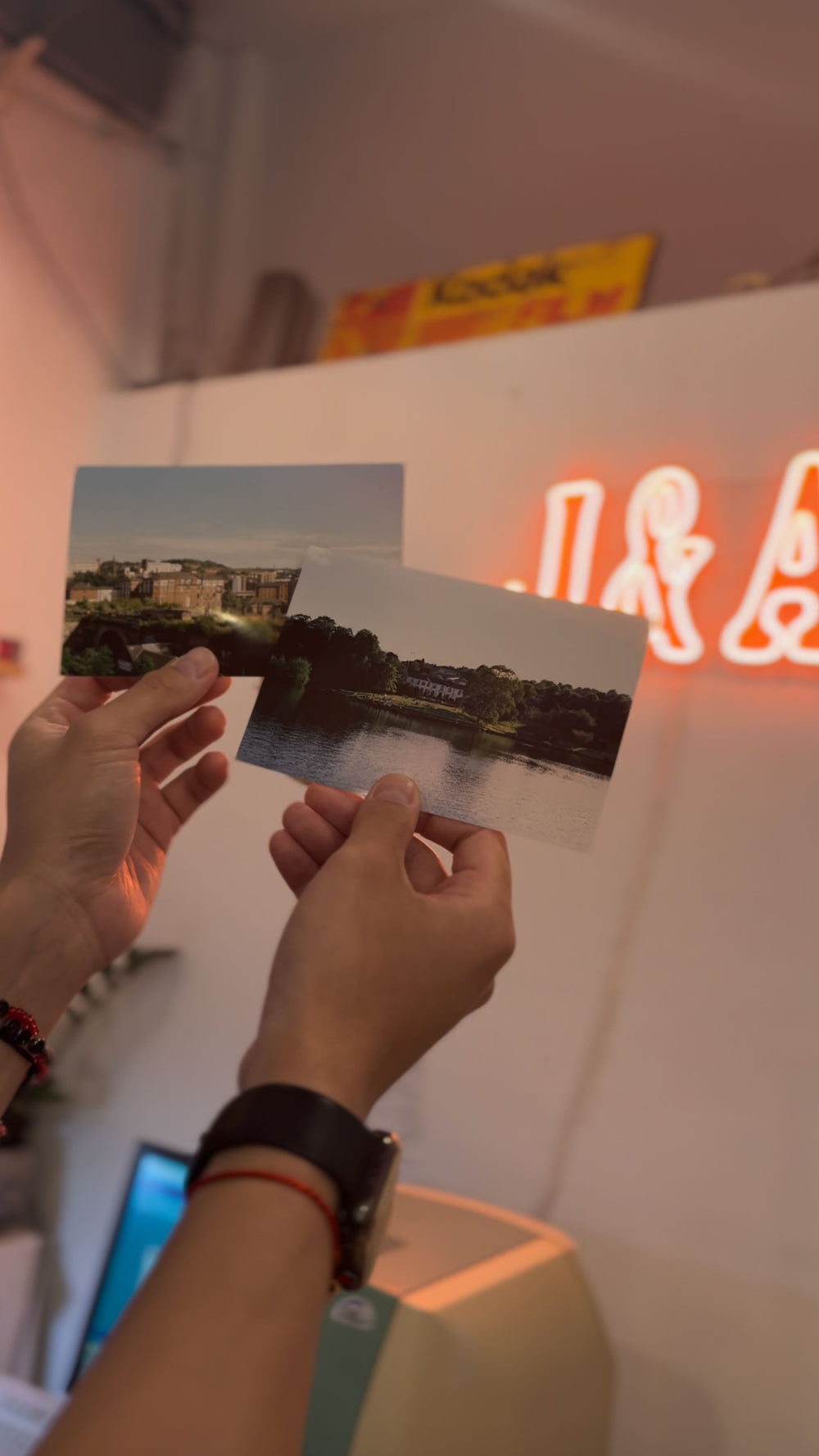What is 35mm & 120 film Developing and Scanning?
In today’s digital age, it’s easy to forget the timeless charm of film photography. Yet for those who appreciate its unique qualities, the process of film developing and scanning remains an essential part of the photographic journey.
Film has a distinct character that digital cameras can’t fully replicate - rich tones, subtle grain, and the tactile feel of real negatives. Many digital photographers try to mimic the look of analogue film with editing presets, but the results are never quite the same.
Understanding film developing and scanning is key to preserving that nostalgic beauty and keeping the craft of photography alive.

The Art of Film Developing
There are loads of analogue film types including 35mm, 120, 110, APS and so on, today we will only talk about 35mm and 120 film.
Film developing transforms the hidden image on your roll of film into a visible photograph. Whether it’s classic 35mm or 120 film, each type requires careful techniques to bring out the best results. From colour film using the C41 process to traditional black and white development, a professional lab ensures your photos are handled with precision and care.
After developing, the next step is film scanning to convert negatives or slides into high-quality digital files. This allows you to view, share, and store your analogue images in today’s digital world. Professional labs use advanced scanners that preserve the fine details and tones often lost with basic home scans.
Choosing expert film processing services gives you consistent quality and peace of mind. Skilled technicians understand the unique needs of each film type and can handle even the most delicate rolls. Many labs offer both 35mm and 120 film processing, along with slide scanning, making them a one-stop option for every film photographer.
Whether you’re new to analogue or a long-time film shooter, understanding film developing and scanning helps you get the best from your work. Trusting professionals ensures your images are preserved with the same care you put into capturing them.

Using different scanners can vary the results

The Beauty of Film Photography
Film photography has a timeless quality that continues to captivate photographers and enthusiasts alike. The unique characteristics of film, such as its rich tones, subtle grain (yes we all love the grains from analogue film!) , and tactile experience, have a way of evoking a sense of nostalgia and authenticity that digital photography often struggles to replicate.

Halation is a unique effect found on some 35mm and 120 films
As we navigate the ever-evolving landscape of photography, it's important to recognise the significance of film developing and scanning in preserving these cherished memories.
Digitising Your Analog Memories
Physical prints seem to be not as common as before, people only need digital files that can be shown and shared in their smartphone. That's why modern film labs have dev+scan option for film processing.
This process involves carefully converting the physical negatives or slides into high-quality digital files, allowing you to enjoy and share your photographs in the modern digital landscape. Advanced scanning techniques employed by professional film labs can capture the nuances and details that might be lost in a simple smartphone scan, ensuring that your film-based memories are preserved with the utmost fidelity.
The Benefits of Professional Film Processing
Choosing a professional film processing service offers numerous advantages beyond the quality of the final product. Experienced technicians have the knowledge and equipment to handle even the most delicate or challenging film types, ensuring that your precious images are treated with the utmost care.

Black and White film scanned by J&A Studio
Additionally, many film labs (like us!) offer a range of services, from 35mm film developing to 120 film processing, as well as the digitisation of slides and negatives, providing a one-stop solution for all your analog photography needs. Also, different labs scanning quality and colour profiles varies, and can depend on the person who scans it as well as the calibrations and colour profile of the scanner.
Preserving Your Photographic Memories
Whether you're a seasoned film photographer or just beginning to explore the world of analog photography, understanding the importance of film developing and scanning is crucial in unlocking the full potential of your photographic journey.

Some modern labs offer "scanning with film sprockets"
By entrusting your film to the skilled hands of a professional lab, you can rest assured that your memories will be preserved with the same care and attention that you've poured into capturing them. So, embrace the timeless allure of film photography and unlock the magic of your analog memories through the art of film developing and scanning!
_____________________________________________________________________________
J&A Studio – a professional photo studio and film lab! Follow our Instagram if you love film photography and want to see the latest from our studio!






Leave a comment